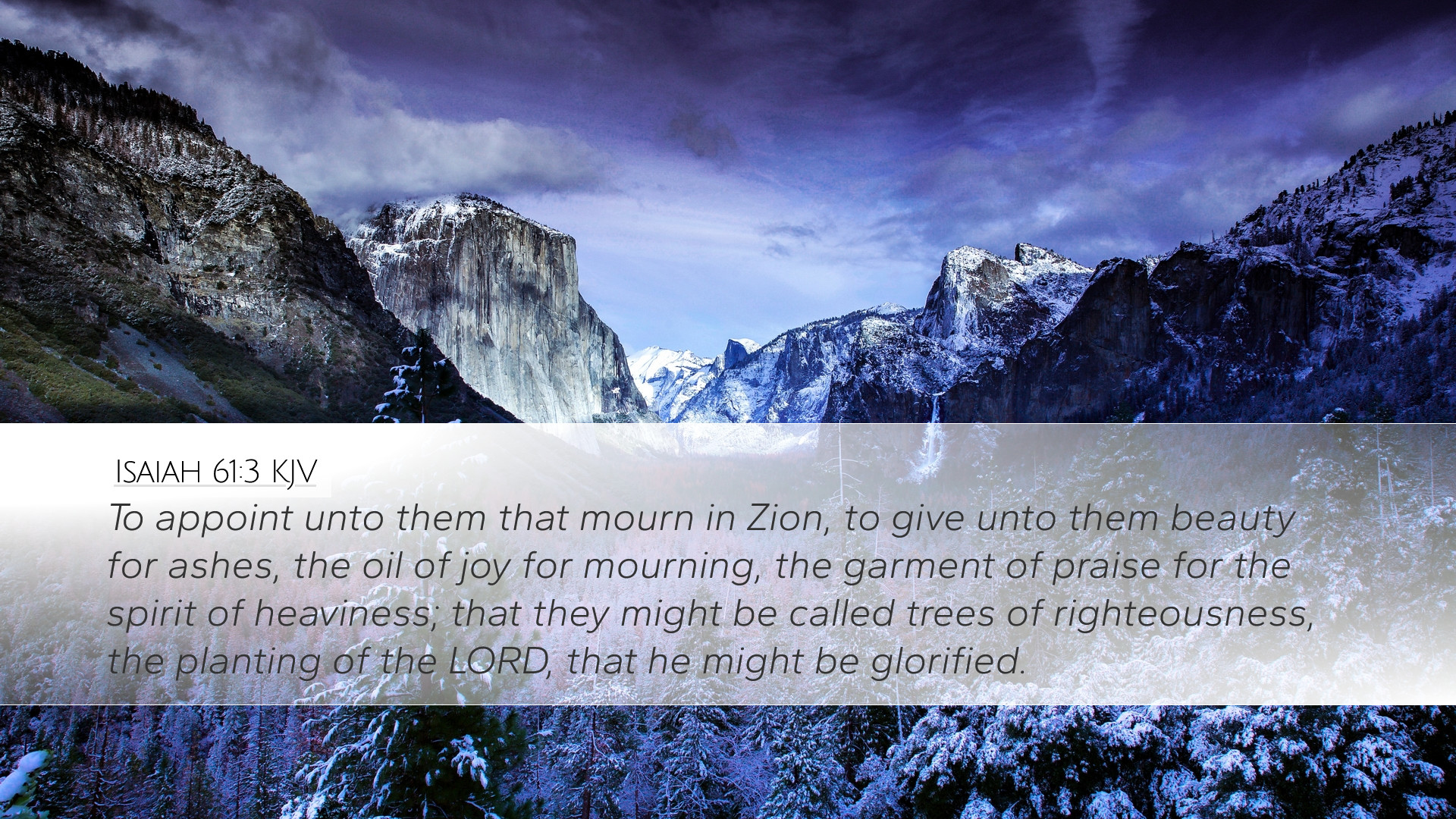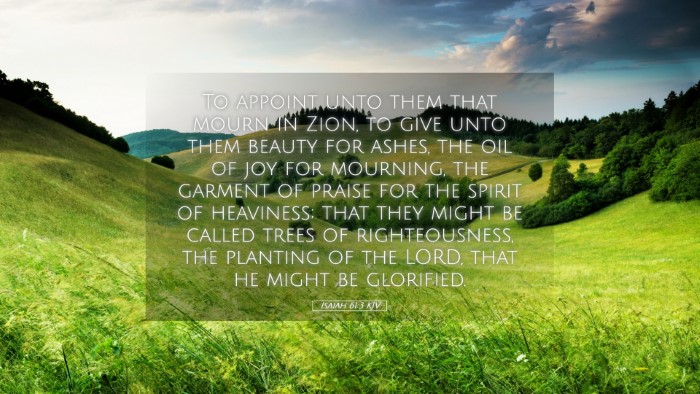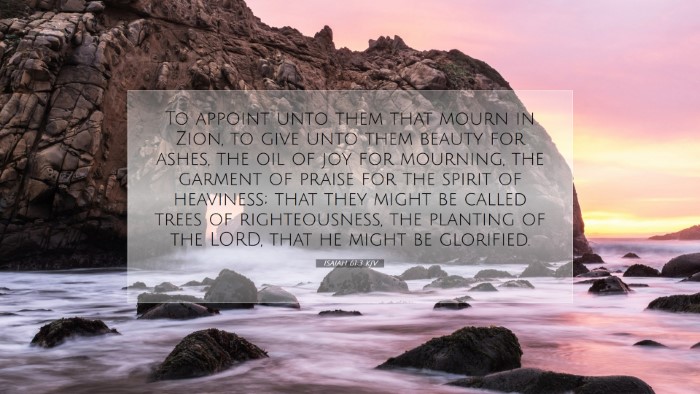Commentary on Isaiah 61:3
Isaiah 61:3 is a profound verse in the context of the prophetic proclamations concerning the coming Messiah and the restoration of God’s people. This verse reads:
"To appoint unto them that mourn in Zion, to give unto them beauty for ashes, the oil of joy for mourning, the garment of praise for the spirit of heaviness; that they might be called trees of righteousness, the planting of the LORD, that he might be glorified."
Thematic Insights
This verse encapsulates several key themes important for understanding the Messianic hope and the transformative power of God’s grace. Below, we examine several insights drawn from public domain commentaries.
1. The Context of Mourning
Matthew Henry points out that this passage addresses those who are mourning, signifying a deep spiritual and emotional grief experienced by the people of God due to their sins and the exile from their homeland. The notion of mourning in Zion conveys the pain of separation from God’s covenant.
2. The Exchange of Beauty for Ashes
Albert Barnes expounds on the image of "beauty for ashes," highlighting the profound exchange that God offers. Ashes, a symbol of mourning and despair, are replaced with beauty, synonymous with joy, restoration, and divine favor. This encapsulates the hope that believers have in God's redemptive plan.
3. The Oil of Joy
Adam Clarke emphasizes the symbolism of "the oil of joy for mourning." In biblical times, oil was often associated with joy and celebration, such as in feasts. The oil of joy signifies a profound internal transformation where grief is replaced by a deep, abiding joy that comes from the presence of God.
4. The Garment of Praise
Matthew Henry notes that the "garment of praise for the spirit of heaviness" suggests a radical shift in the disposition of the heart. The metaphor of clothing indicates a new identity and purpose that believers assume when they accept God’s restoration, moving away from despair into a state of perpetual praise.
5. The Resulting Transformation
In the final phrase, “that they might be called trees of righteousness,” there is an implication of stability and strength. Albert Barnes explains that trees symbolize endurance and a fruitful life. Those who experience God’s healing touch become rooted in righteousness, reflecting God's glory in their lives.
Exegetical Examination
Exegetically, this verse serves as a bridge between the suffering of Israel and the promised deliverance through the coming Messiah. It comprises both a prophetic proclamation and a personal invitation to those who are weary and burdened.
Theological Implications
- Messianic Fulfillment: This passage is often viewed as fulfilled in Christ, who directly links Himself to this prophecy in Luke 4:18-19.
- Restorative Theology: The promise of beauty, joy, and praise speaks directly to the Christian understanding of redemption and restoration through Christ.
- Community and Individuals: While addressing the collective grief of Israel, this verse also touches on individual experiences of sorrow, making it relevant for personal and communal healing.
Practical Applications
For pastors, theologians, and students of the Word, the implications of Isaiah 61:3 can serve as both theological foundation and pastoral care guidance:
- Pastoral Counseling: This passage can be a source of comfort for those undergoing grief and suffering, leading to a deeper understanding of God’s restorative work.
- Liturgical Use: The imagery of exchanging ashes for beauty can be incorporated into services of healing, reflection, and celebration.
- Personal Reflection: Individuals are encouraged to meditate on areas of their lives where they experience mourning, seeking God’s transformation and joy.
Conclusion
Isaiah 61:3 serves as a powerful reminder of God's intention to redeem His people from despair, offering a comprehensive vision of restoration that is deeply relevant today. The insights drawn from respected commentators provide a rich tapestry of understanding that can inspire hope and action in the hearts of believers and their communities.


